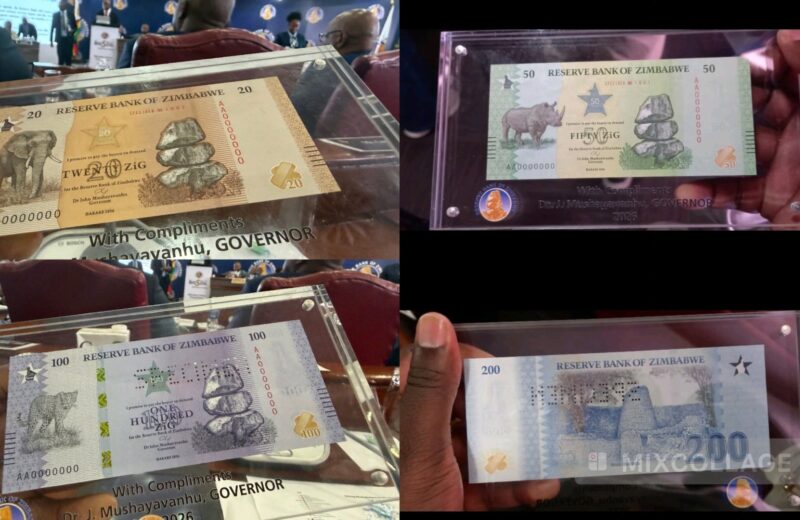No More Fines For Abusing, Peddling Drugs: Zimbabwe Gets Tough On Substance Abuse
Zimbabwe has announced there will be no more fines for those abusing or peddling drugs, with tough new measures that include distributing drug test kits across the country. The authorities say the new approach is part of a broader strategy to tackle substance abuse head-on and stop the spread of narcotics.
Drug test kits for clinics and police posts
According to the Herald, Defence Minister Oppah Muchinguri-Kashiri, who also chairs the National Committee on Drug and Substance Abuse, confirmed that testing kits would be rolled out nationwide.
She explained in detail:
“We have imported test kits. So, we are, I think, from next week, deploying these test kits to clinics and also to police posts, hospitals, so that as much as possible we assist those that need help. These kits will help us to identify people early, especially young people, so that we can intervene before it is too late. We want to make sure that when people present themselves, or when the community refers them, they are tested and the right help is given immediately. This is about saving lives and also protecting communities.”
She went on to clarify that the process will not be forced but open to everyone through different community channels.
“Not only are we opening up to those who report themselves, who walk into these clinics, but we also take in those who come from traditional leaders or from the Church leadership. They can also recommend that a person might require rehabilitation. This is a community-driven programme, and we are saying, let’s work together as families, communities, churches and leaders to fight this scourge. It is not just about catching people; it is about healing and rehabilitating.”
No fines, only jail terms
Minister Muchinguri-Kashiri also explained why Government scrapped fines for drug offences and introduced much tougher punishments.
“In the past, those who were arrested for having drugs were fined US$30 (about R550). We realised that US$30 was not a deterrent enough. People could easily pay that amount and continue with the same behaviour. We had to put in place a Statutory Instrument to make sure we defined the type of drugs properly and gave the police and courts the right legal tools to act. We made it clear that the police can arrest but are not allowed to collect any fine for this. Every single case must now appear before the courts.”
She stressed that offenders would face lengthy sentences.
“Just to make sure that arrests do not result in fines. They call for 15 years of imprisonment. This is now the law. We had also received complaints from the general public that fining or arresting people, or handing down sentences, where people were given community service to work just for a few hours, is not enough. We listened to those concerns, and we acted. We are elevating all these cases to the courts to ensure that proper justice is delivered.”
“Very ugly measures” coming
Before these announcements, President Emmerson Mnangagwa’s spokesperson George Charamba had already warned that harsher measures were being prepared. Writing on his X account under the pseudonym Jamwanda on 7 October 2025, he posted a strongly worded statement:
“GUYS, GET WARNED: We are contemplating very ugly measures for those involved in peddling or consuming drugs. It’s going to be really ugly!!!!! People must not think this is just a campaign or a passing phase. We are serious about uprooting this menace from our society, and those who are caught will face consequences they never imagined. I repeat, it is going to be very ugly.”
His warning came after a string of high-profile arrests. Robert Mugabe Junior, the son of the late President, was arrested on 1 October 2025 and accused of leading a drug peddling syndicate. Police said they seized 25 sachets of Indo hybrid dagga and six ecstasy pills. Prosecutors, however, presented a smaller stash in court. The dagga was valued at US$30 (R550). He was later granted bail of US$300 (R5,500).
On 6 October 2025, police arrested former Warriors forward Abbas Amidu, who was allegedly found with 750kg of dagga worth US$75,000 (R1.4 million).
In September, musician Ras Pompy, real name Nyasha Reginald Mano, was sentenced to six months in prison after being caught with 100 bottles of cough syrup worth US$396 (R7,200). This sentence stood in sharp contrast to the case of nine Chinese nationals fined just US$150 (R2,700) each after pleading guilty to cocaine use on 4 September. They were later earmarked for deportation.
Rehabilitation and community role
Minister Muchinguri-Kashiri insisted that the fight against drugs is not only about punishment but also about rehabilitation and helping victims.
“Then the other issue also is that we know that those who are taking drugs, some of them are victims, some are as young as eight years old. We are working with the churches, we also have clinics and hospitals in the fight against drugs. Government has clinics and hospitals, some of which will be used to treat those cases that are not very serious. This is where we are also addressing the issue of harm reduction. This involves treatment and also rehabilitation and building the capacities of these people to be able to develop their own skills. We then assist them again with loan facilities so that they go back to normalcy. So, it is a process, not a one-day solution. We want to restore families, we want to restore lives, and we want to restore communities.”
With the new measures in place, Zimbabwe has taken a hard stance. No fines, tougher jail terms, increased border security, and a strong rehabilitation drive signal a new era in the battle against substance abuse.
Follow Us on Google News for Immediate Updates
The post Zimbabwe Ends Easy Fines For Drugs, Introduces Jail Penalties appeared first on iHarare News.









